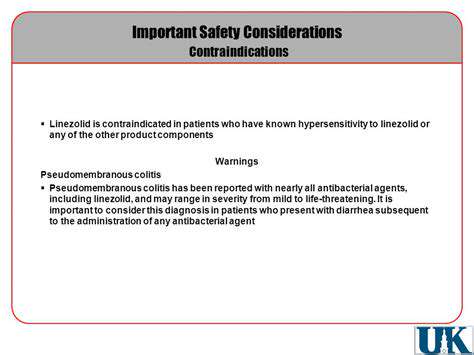Triptans and Stroke Risk
Triptans, while effective for migraine relief, have been linked to an increased risk of stroke, particularly in individuals with pre-existing cardiovascular conditions. Studies have shown a correlation between triptan use and the occurrence of ischemic strokes, a type of stroke caused by reduced blood flow to the brain. This increased risk is more pronounced in patients with pre-existing cardiovascular risk factors such as high blood pressure, high cholesterol, or a history of heart disease. Understanding this risk is crucial for appropriate patient selection and monitoring.
Further research is needed to fully elucidate the mechanisms behind this potential association. However, clinicians should exercise caution when prescribing triptans to patients with known cardiovascular issues and carefully weigh the benefits against the potential risks. Close monitoring of patients is essential, especially during the initial period of triptan use.
Triptans and Coronary Artery Disease
Patients with coronary artery disease (CAD) present a unique challenge when considering triptan use. CAD involves narrowing of the coronary arteries, reducing blood flow to the heart muscle. Triptans, by constricting blood vessels, potentially exacerbate these existing issues. The vasoconstrictive effects of triptans could potentially compromise blood flow to the heart, potentially increasing the risk of angina or even triggering a heart attack in susceptible individuals.
It's important to emphasize that not all individuals with CAD will experience adverse effects from triptans. However, careful consideration of individual patient risk factors, including the severity of CAD, the presence of other cardiovascular conditions, and the patient's overall health status, is paramount. Clinicians should exercise caution and consider alternative migraine treatments when necessary.
Triptans and Peripheral Vascular Disease
Peripheral vascular disease (PVD) encompasses a range of conditions affecting the blood vessels outside the heart and brain. Triptans, with their vasoconstrictive properties, could potentially worsen PVD symptoms by further reducing blood flow to the extremities. This could lead to increased pain, numbness, or even tissue damage in individuals with pre-existing PVD.
Clinicians need to carefully assess the patient's overall cardiovascular health and the severity of their PVD before prescribing triptans. The potential benefits of triptan use must be weighed against the risk of exacerbating existing PVD symptoms. Monitoring for any worsening of symptoms is crucial during triptan treatment.
Triptan Use and Hypertension
Hypertension, or high blood pressure, is a significant risk factor for cardiovascular events. Triptans, through their vasoconstricting effects, can potentially elevate blood pressure in some individuals, especially those with pre-existing hypertension or uncontrolled blood pressure. This increase in blood pressure could exacerbate existing cardiovascular conditions or potentially increase the risk of a hypertensive crisis.
Triptans and Aortic Stenosis
Patients with aortic stenosis, a condition where the aortic valve narrows, face a unique risk profile when considering triptan use. The vasoconstricting effects of triptans may further reduce blood flow through the already narrowed valve, potentially leading to serious cardiovascular complications. The reduced blood flow can cause angina, shortness of breath, and potentially a life-threatening cardiac event.
Clinicians must carefully evaluate the patient's individual risk factors, including the severity of aortic stenosis, other cardiovascular conditions, and overall health status, before prescribing triptans. In some cases, alternative migraine treatments might be a safer option.
Triptan Interactions with Other Medications
Triptans can interact with other medications, particularly those affecting the cardiovascular system. For example, combining triptans with certain blood pressure medications or anti-coagulants could lead to potentially dangerous interactions. These interactions could significantly alter the effectiveness of the medications or increase the risk of side effects. Clinicians must be aware of these potential interactions and carefully assess the patient's current medication regimen before prescribing triptans.
Thorough medication reconciliation and a comprehensive review of the patient's medical history are essential to minimize the risk of adverse drug interactions. This preventative measure is crucial for optimal patient care and safety.
Selecting the perfect location for your new business venture is crucial to its success. A strategic location can significantly impact your business's visibility, accessibility, and ultimately, profitability. Careful consideration of various factors, ranging from demographics to competition, ensures a strong foundation for long-term growth. This process should involve thorough market research and an understanding of your target customer base to pinpoint the optimal area for your business to thrive.
Pregnancy and Breastfeeding: Special Considerations

Understanding the Physical Changes
Pregnancy and breastfeeding are transformative periods for a woman's body, marked by significant hormonal shifts and physical adaptations. These changes affect everything from the digestive system to the cardiovascular system, and it's crucial to understand these adjustments to maintain overall health and well-being during this time. Recognizing these changes empowers women to proactively manage potential challenges and ensure they receive the necessary support and care. Proper nutrition and hydration become even more critical during this period to support the growing needs of the mother and the developing baby.
Many women experience increased fatigue, nausea, and a range of other discomforts during pregnancy. Understanding these symptoms as part of the natural process can help alleviate anxieties and foster a more positive experience. This period also brings changes in the breast, preparing them for lactation. These changes are a testament to the body's remarkable ability to adapt.
Nutritional Considerations During Pregnancy and Breastfeeding
Adequate nutrition is paramount during pregnancy and breastfeeding. A balanced diet rich in essential vitamins, minerals, and proteins is crucial for the healthy development of the fetus and the production of high-quality breast milk. Specific nutrients, like folic acid, iron, and calcium, play vital roles during these stages, and deficiencies can have significant consequences. Consulting with a registered dietitian or healthcare professional is essential for personalized guidance on dietary needs.
Breastfeeding mothers require significantly higher calorie and nutrient intake to sustain milk production. This increased demand highlights the importance of a well-rounded diet that includes a variety of nutrient-dense foods. A focus on whole grains, lean proteins, fruits, and vegetables is key for providing the necessary energy and nutrients. It is also essential to stay well hydrated throughout this period.
Managing Potential Health Concerns
Pregnancy and breastfeeding can present various health challenges, from gestational diabetes to postpartum depression. Understanding the potential risks and seeking timely medical attention are vital for a healthy outcome. Regular prenatal check-ups and postpartum follow-ups are crucial for monitoring progress and addressing any concerns promptly. Early detection and intervention can significantly improve the overall health and well-being of both mother and child.
Postpartum care is often overlooked, but it is equally important as prenatal care. This period involves recovery, adjustment, and establishing a healthy routine for both the mother and the baby. Addressing potential mental health concerns, such as postpartum depression, is crucial for the well-being of the entire family unit. Understanding the signs and symptoms of these conditions and seeking help when needed is essential.
Importance of Support Systems
The journey of pregnancy and breastfeeding can be emotionally and physically demanding. Having a strong support system, including family, friends, and healthcare providers, is essential for navigating the challenges and celebrating the joys of this transformative time. Connecting with other mothers going through similar experiences can provide valuable emotional support and practical advice. A supportive network can ease anxieties, provide encouragement, and create a positive and empowering environment.
Seeking professional guidance from healthcare providers like doctors, nurses, and lactation consultants is key to ensuring a smooth transition. They can offer valuable insights and support throughout the entire journey. This support can take many forms, from addressing specific medical needs to offering emotional encouragement.
